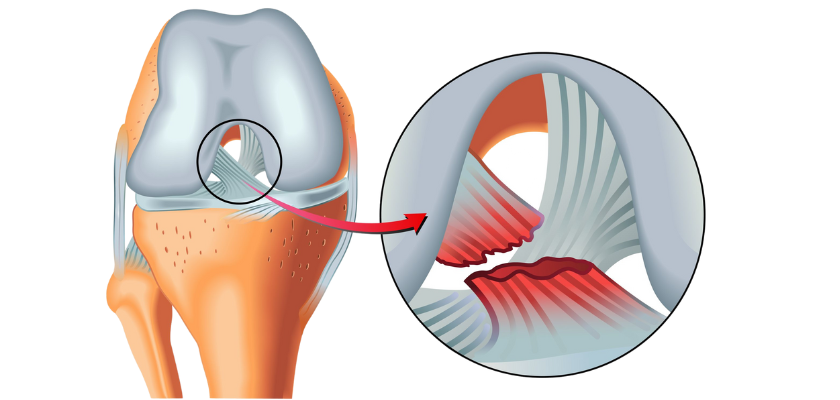
Consult Dr. Kunal Makhija
Knee Ligament Surgeon in Navi Mumbai
If you are suffering from knee ligament injuries or have been diagnosed with a condition that may require surgical intervention, consulting an expert like Dr. Kunal Makhija is crucial.
Dr. Makhija specializes in knee ligament surgery and offers advanced techniques to restore stability and function to the knee joint.
With his expertise and commitment to patient care, Dr. Makhija provides tailored solutions to help you regain mobility and improve your overall quality of life.
Reach out to Dr. Kunal Makhija to explore your options for knee ligament surgery and find a comprehensive treatment plan in Navi Mumbai.
Causes
When to Consider Knee Ligament Surgery in Navi Mumbai
The knee joint relies on a network of ligaments to provide stability and facilitate movement. These ligaments are susceptible to various diseases and conditions that can lead to pain, instability, and decreased function. Understanding these conditions and their causes is essential for determining the appropriate treatment, including the potential need for knee ligament surgery.
Common Knee Ligament Diseases & Conditions
- Anterior Cruciate Ligament (ACL) Injuries: The ACL is one of the primary ligaments that stabilizes the knee. ACL injuries often occur during sports activities involving sudden stops or changes in direction. A tear or sprain of the ACL can cause significant pain, swelling, and instability in the knee.
- Posterior Cruciate Ligament (PCL) Injuries: The PCL helps stabilize the knee by preventing the tibia from sliding too far backward. PCL injuries are less common but can occur due to direct trauma or a fall onto a bent knee. Symptoms may include pain, swelling, and difficulty with knee movement.
- Medial Collateral Ligament (MCL) Injuries: The MCL is located on the inner side of the knee and helps prevent excessive sideways motion. MCL injuries typically result from direct blows to the outer knee or excessive twisting. Symptoms include pain, swelling, and tenderness along the inner knee.
- Lateral Collateral Ligament (LCL) Injuries: The LCL is located on the outer side of the knee and provides stability against excessive sideways motion. LCL injuries are less common and usually result from a direct impact or a twisting injury. Symptoms include pain, swelling, and instability on the outer side of the knee.
- Ligament Sprains: Ligament sprains occur when the ligaments are stretched beyond their normal range of motion, leading to varying degrees of injury. Mild sprains may cause discomfort and swelling, while severe sprains can lead to significant pain and joint instability.
- Chronic Knee Instability: In cases where ligament injuries are not properly treated or rehabilitated, chronic instability can develop. This condition can lead to persistent pain, frequent giving way of the knee, and difficulty with daily activities.
Symptoms
Conditions Leading to Knee Ligament Surgery in Navi Mumbai
When knee ligament diseases or conditions progress to a point where they severely impact a person’s quality of life and other treatments have been ineffective, knee ligament surgery may be considered. The following conditions are common reasons for undergoing knee ligament surgery:
- Complete Ligament Tears: When a ligament is completely torn, such as a full ACL or PCL tear, surgery may be necessary to restore stability and function to the knee.
- Persistent Instability: If knee instability persists despite conservative treatments, such as physical therapy or bracing, surgical intervention may be required to repair or reconstruct the damaged ligaments.
- Failed Conservative Treatments: If non-surgical treatments, including rest, physical therapy, and medication, have not provided sufficient relief for ligament injuries, surgical options may be explored.
- Chronic Pain and Dysfunction: In cases where ligament injuries result in ongoing pain and significant functional impairment that affects daily activities, surgery may be the best option to improve quality of life.
- Recurrent Injuries: Individuals who experience multiple ligament injuries or recurrent episodes of instability despite conservative management may benefit from surgical intervention to address the underlying issues.
The small puncture wounds take several days to heal. The operative dressing can usually be removed the morning after surgery and adhesive strips can be applied to cover the small healing incisions.
